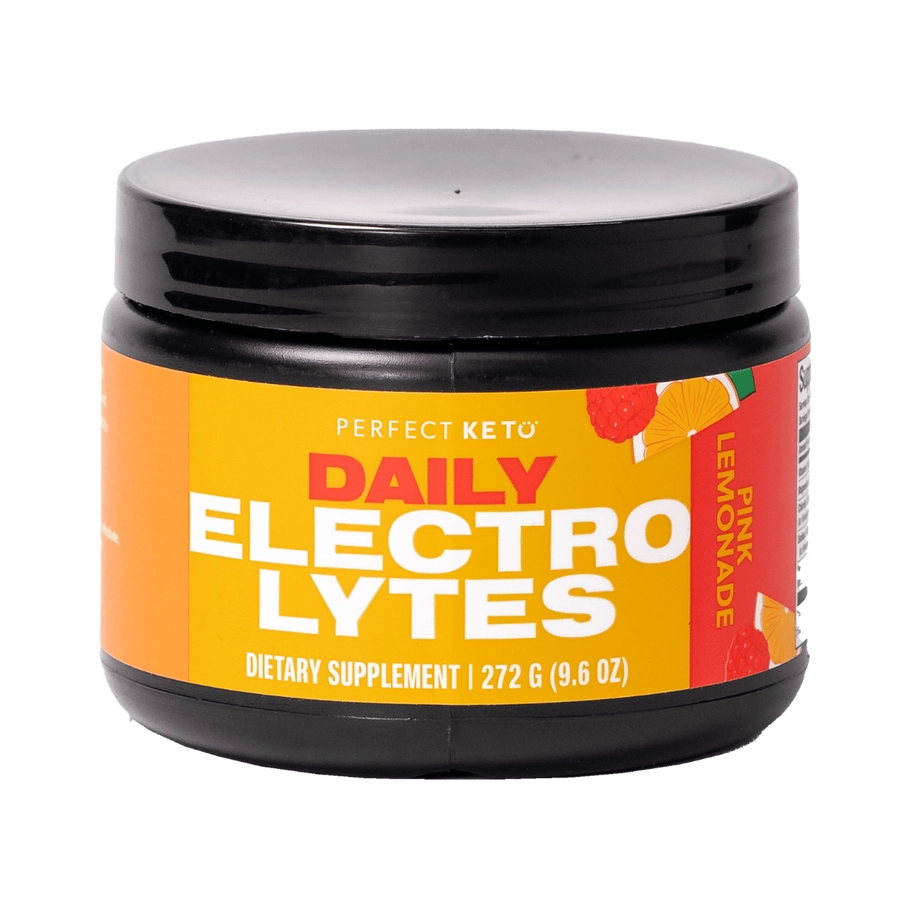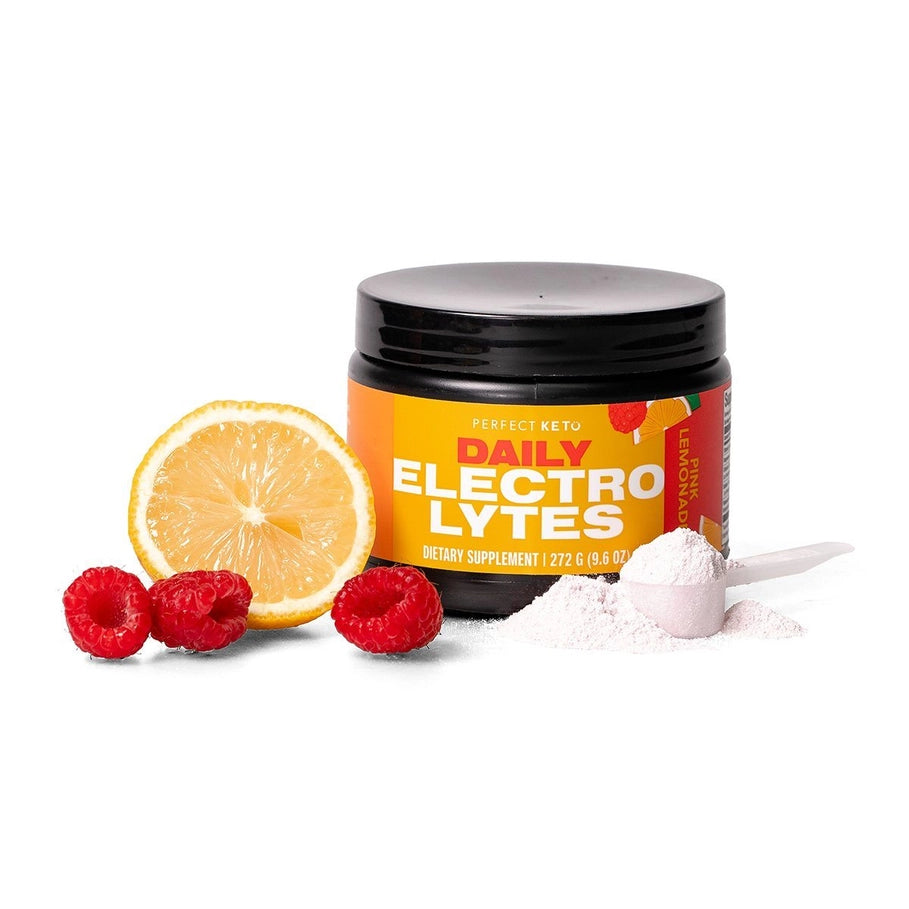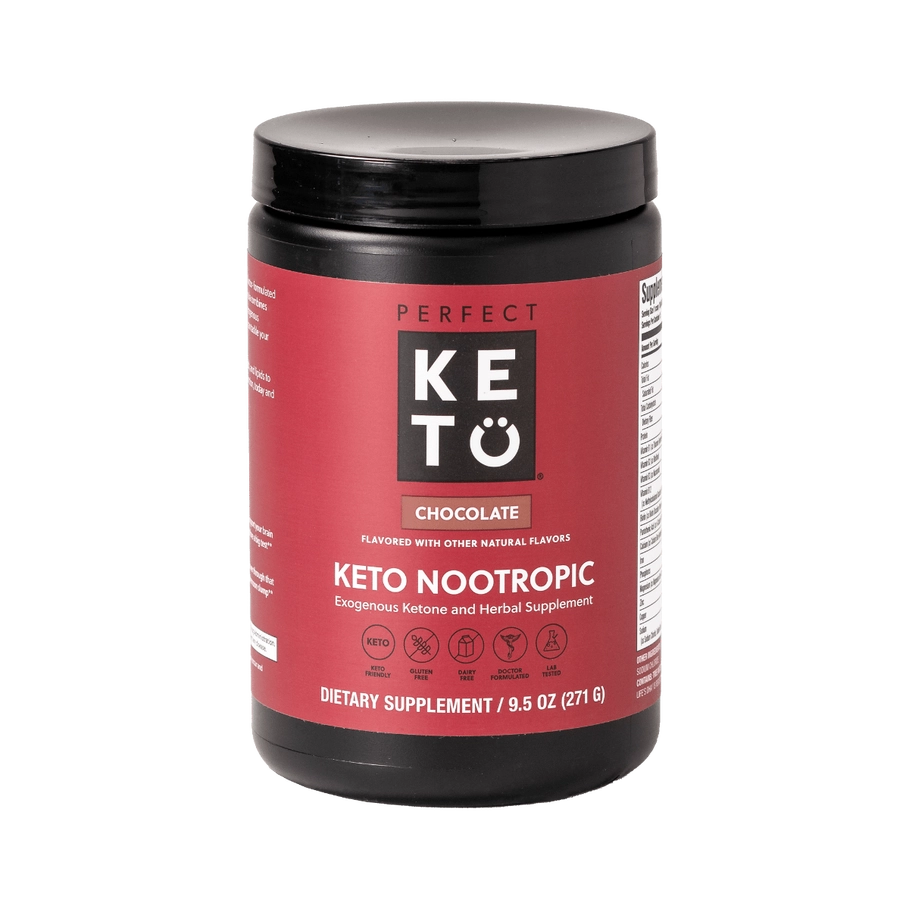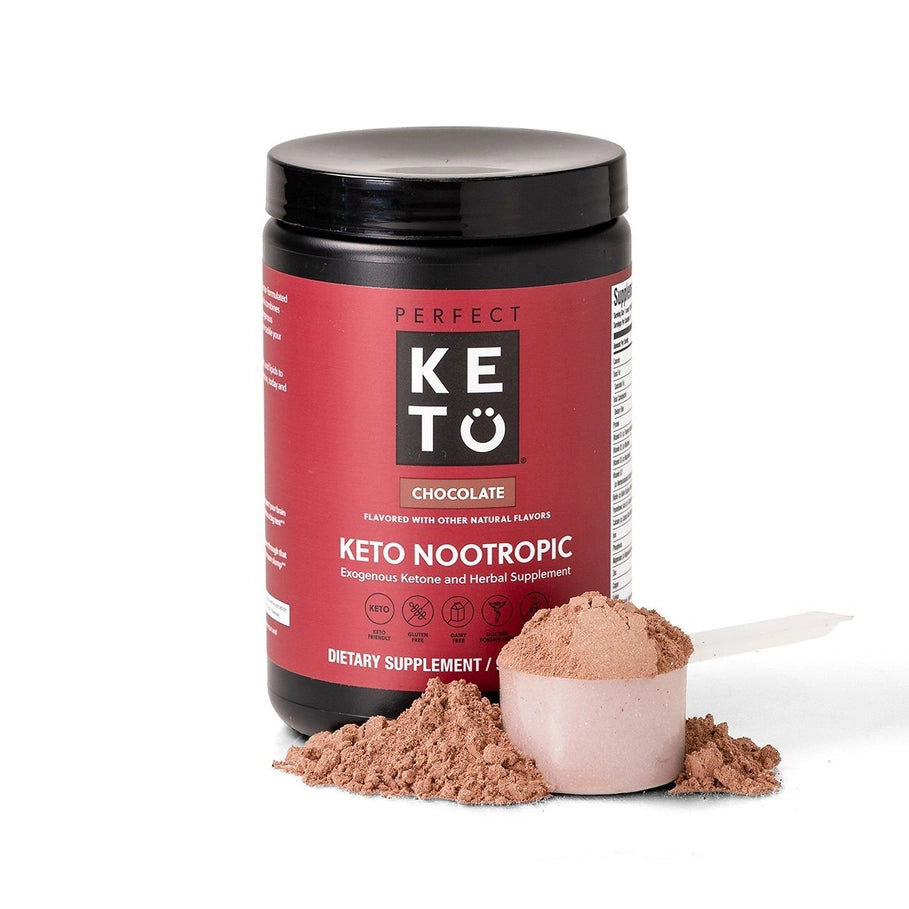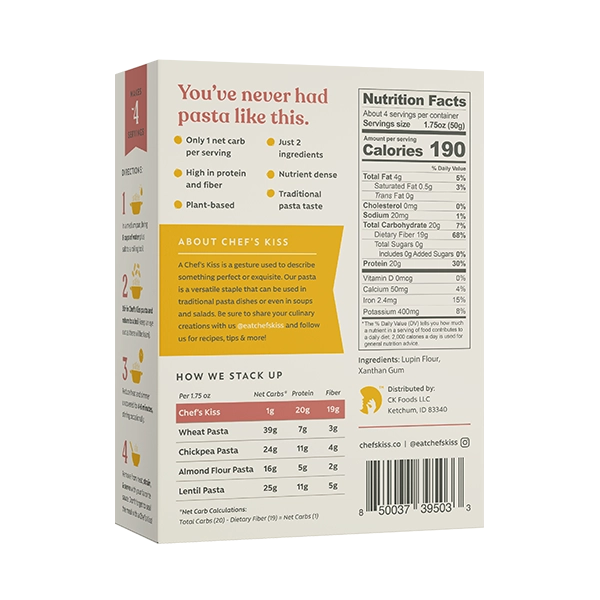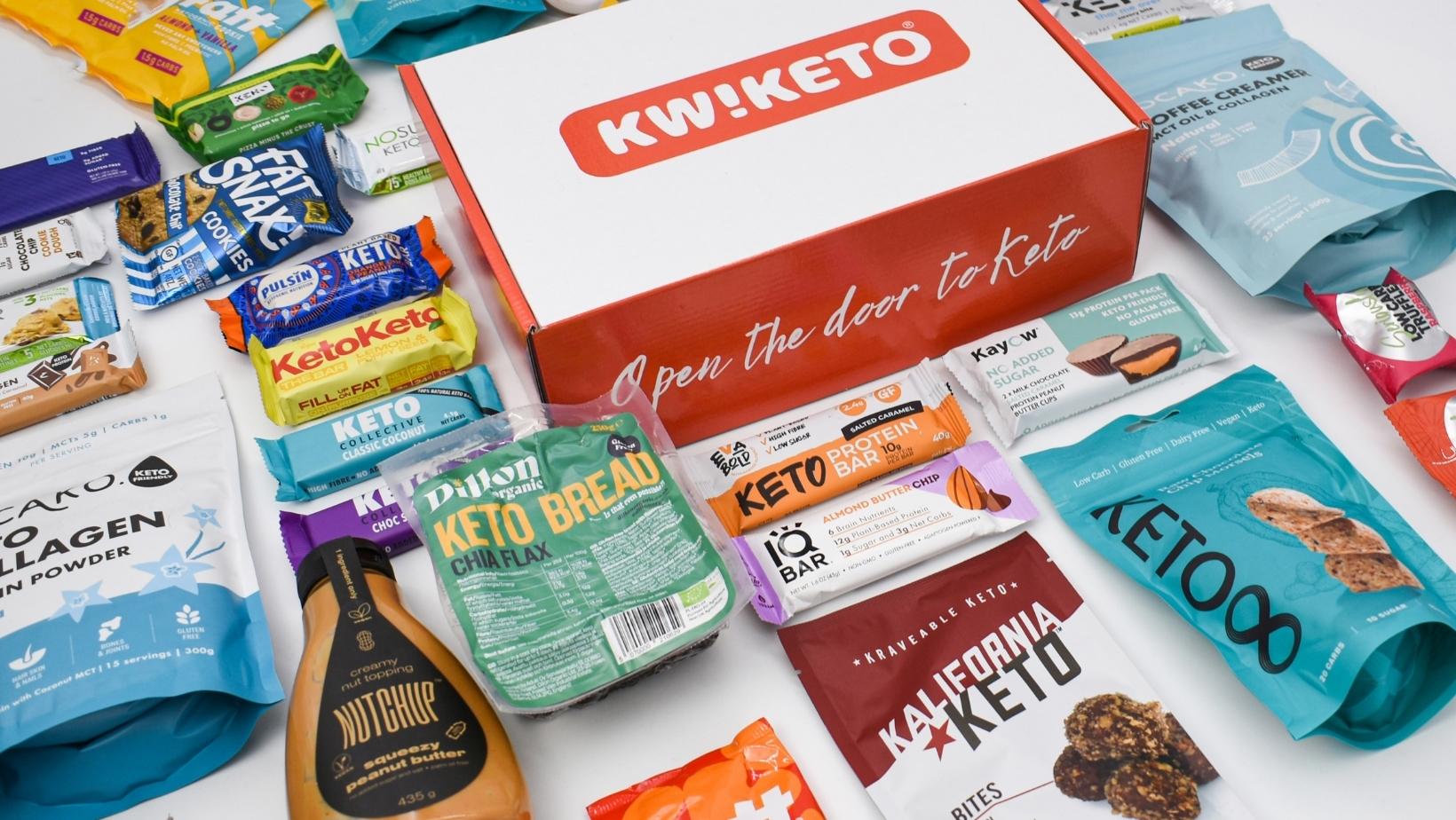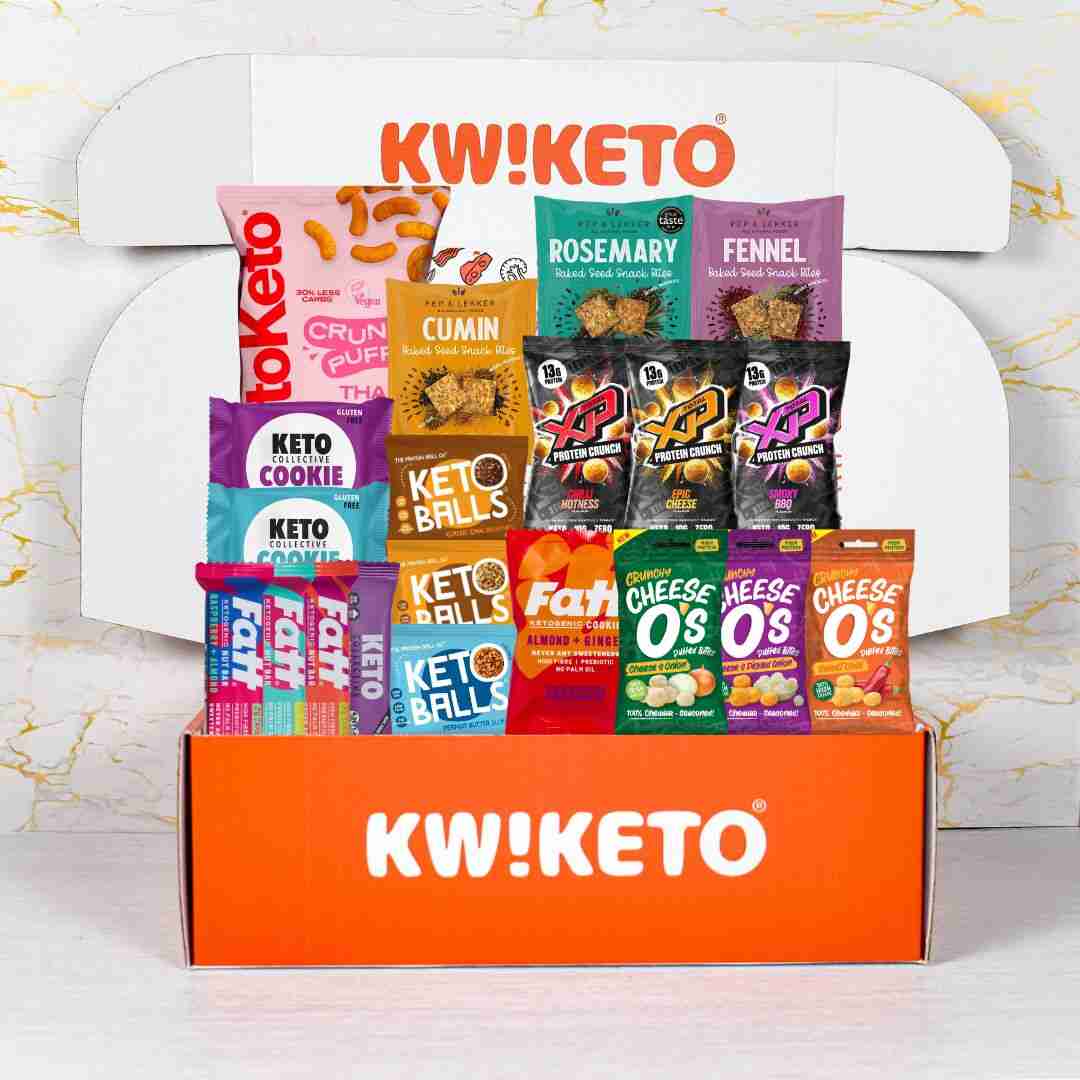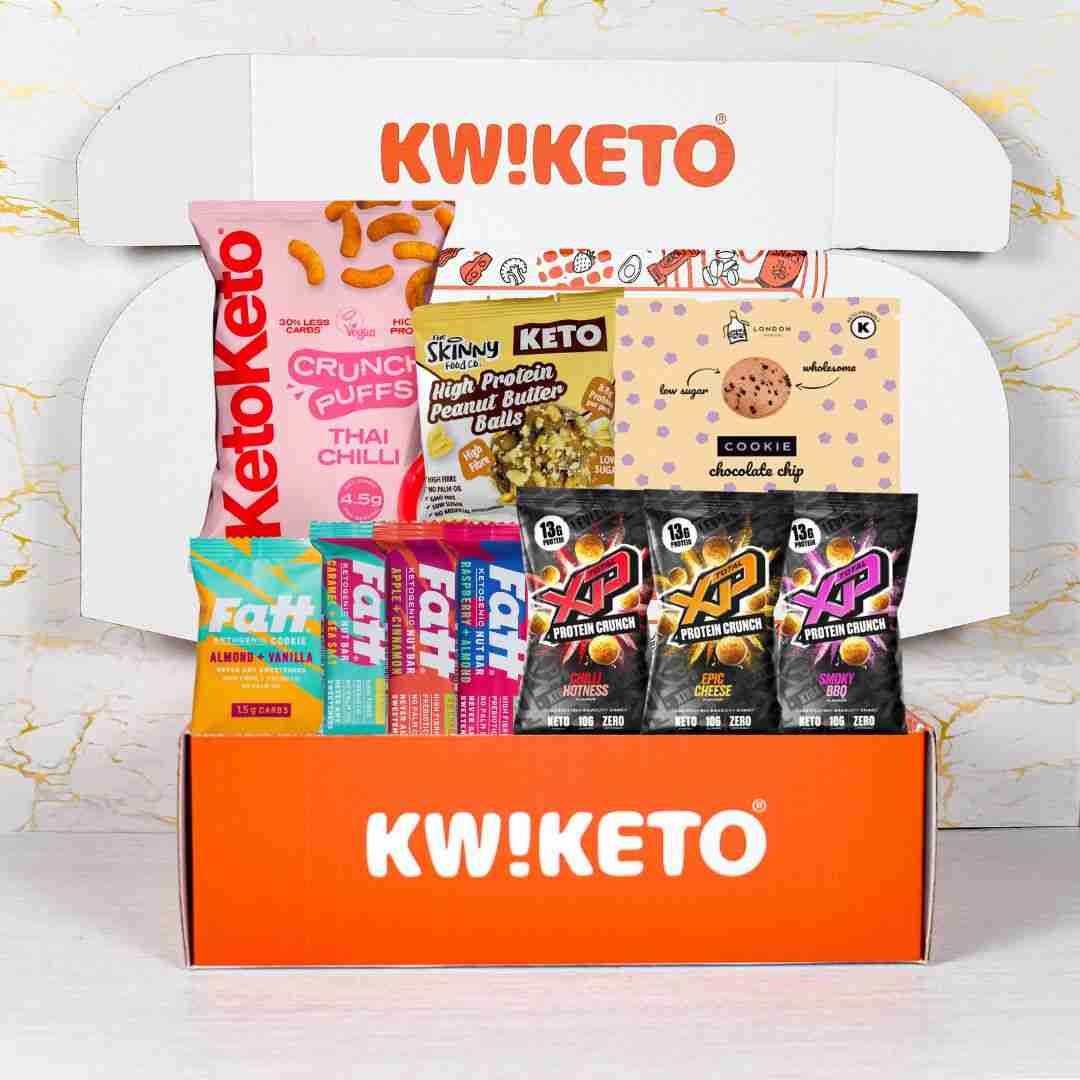
Top Keto Supplements: Benefits and Science Insights
The Truth About Keto Supplements: What Science Really Says in 2025
Recent clinical studies show keto supplements can increase blood ketone levels by over 300%. The ketogenic diet naturally triggers ketosis through strict carbohydrate restriction, and people now turn to supplements for extra support.
Ketone supplements and exogenous ketones in the UK deliver results beyond ketosis simulation. Research proves these supplements can cut hunger by half compared to sugary drinks. This makes them a popular choice among the 27 million Americans struggling with Type 2 diabetes. The market now floods with countless products, and understanding what science really says about these supplements is a vital need.
The latest research, clinical studies, and expert knowledge will help you separate fact from fiction about keto supplementation in 2025.
What Are Keto Supplements?
Keto supplements support ketosis without the need to follow a strict ketogenic diet. These supplements contain exogenous ketones - ketones that come from outside the body instead of being produced naturally through ketogenesis [1].
Types of exogenous ketones
The market has three main types of keto supplements:
-
Ketone Salts: These combine beta-hydroxybutyrate (BHB) with minerals like sodium, potassium, calcium, or magnesium [2]
-
Ketone Esters: Pure ketones that metabolize faster into BHB, offering the most potent form [2]
-
MCT-Based Products: Medium-chain triglycerides that convert to ketones in the liver [2]
Common ingredients
Beta-hydroxybutyrate (BHB) is the most active ketone body that tissues use for energy [2]. Many supplements use MCT oil, which comes from coconut oil and breaks down quickly in the liver [1]. The products also include supporting ingredients like bone broth, caffeine, apple cider vinegar, collagen, and adaptogenic herbs that help manage keto flu symptoms [2].
How they work in the body
These supplements raise blood ketone levels artificially to mimic natural ketosis. Research shows that about 12 grams of ketone salts can boost blood ketone levels by over 300% [3]. Ketone supplements can reduce appetite, and studies show a 50% drop in hunger after people take ketone esters during fasting periods [3].
Your body processes each type of supplement differently. Ketone esters with D-βHB reach higher peak concentrations than ketone salts that contain both D-βHB and L-βHB isoforms [3]. The timing is vital - taking ketone monoesters while fasting helps maximize ketosis and reaches peak circulating βHB concentrations above 2 mM [3].
MCT oil supplements work in their own way by turning into ketones through liver metabolism [4]. These supplements give you a more gradual approach to ketone production, which works well for people new to ketogenic supplementation [2].
All the same, taking supplements alone won't give you the same benefits as getting into ketosis through diet [1]. The effects usually last a few hours, so you need multiple doses throughout the day to keep ketone levels high [3].
The Science Behind Ketone Supplements
'What was really exciting was finding that we could protect these mice from inflammatory disease just by putting them on a diet that we supplemented with these compounds.' — Peter Turnbaugh, PhD, of the Benioff Center for Microbiome Medicine at UCSF
Scientists have found new and fascinating insights about how ketone supplements change human metabolism. Their research shows that external ketones lower blood glucose levels by a lot, with a meta-analysis revealing an average reduction of 0.54 mM in blood glucose after supplementation [5].
Latest research findings
Ketone supplements do more than just affect simple metabolism. Beta-hydroxybutyrate (BHB) supplements improve T-cell function and reduce inflammation by blocking specific inflammatory pathways [5]. The brain works better too, as research shows more blood flow to the brain and better thinking when people take ketone supplements [5].
The heart health results look promising. Research shows that external ketones can:
-
Lower blood pressure
-
Increase myocardial blood flow
-
Improve cardiac output
-
Improve brachial artery flow-mediated dilation [5]
Clinical studies in 2024-25
The most exciting breakthrough of 2024-25 comes from cancer treatment research. Scientists at Penn Medicine's Abramson Cancer Center found that BHB supplements combined with CAR T-cell therapy led to complete cancer elimination in most laboratory models [6]. This discovery has led to a Phase I clinical trial for patients with large B-cell lymphoma [7].
Stanford Medicine's research brings another breakthrough, where ketone supplements showed remarkable effects on psychiatric conditions. Their pilot study revealed that 31% of participants got better according to the clinical global impressions scale [8]. The results showed that all but one of these participants had no metabolic syndrome after four months, even though 29% had symptoms at first [8].
The body responds differently based on the dose, and ketone monoesters work better than ketone salts [5]. Research shows blood BHB goes up by 1.73 mM after taking supplements [5], but people respond differently [9].
The latest research without doubt supports how ketone supplements change body metabolism [9]. Studies show these supplements can lower fasting glucose levels and reduce liver glucose production at the same time [10]. The scientific community sees clear biological reasons for ketone supplementation, but researchers say we need larger clinical trials to understand their long-term effects better [5].
Do Keto Supplements Actually Work?
Studies show mixed results about keto supplements' effectiveness. Scientists have found different outcomes in various applications, so we need to look closer at how these supplements work on the ground.
Impact on ketosis
Research shows ketone supplements can raise blood ketone levels effectively. Taking 11 grams of BHB can boost blood ketone concentrations by more than 300% [11]. These elevated levels last only a few hours, so you need multiple daily doses to maintain ketosis [2].
Scientists discovered that ketone monoesters reach peak blood βHB concentrations above 2 mM during fasting [10]. Blood levels drop when people take supplements after meals [2].
Weight loss results
Scientists haven't reached a clear consensus on ketone supplements and weight loss. A newer study, published in 2021 by researchers studying people with obesity found that 24 grams of BHB salt supplement daily for six weeks boosted ketosis. However, it didn't improve weight loss compared to people who just followed the keto diet [12].
The biggest problems with weight loss effectiveness include:
-
Your body slows down ketone production when levels get too high [2]
-
Extra ketones might stop your body from burning fat [2]
-
Ketone supplements add calories to your diet [2]
Athletic performance benefits
Athletes show different responses to these supplements. New research suggests that ketone supplementation might hurt performance sometimes [13]. McMaster University researchers found that cyclists' sustainable speed decreased after taking ketone supplements instead of a placebo [13].
These supplements do have specific benefits in certain situations. Research indicates they can reduce lactic acid production and give athletes a 2% performance boost [1]. Elite and endurance athletes benefit most, especially before long-distance events [1].
The best results come from ultra-endurance events lasting 12 hours or more. During these events, mitochondrial beta-oxidation matches lower ATP demand rates [10]. The type of exercise makes a difference - short, intense workouts might not benefit from ketone supplements [4].
Timing matters a lot for effectiveness. Athletes who take ketone supplements beforehand report mixed results. Some experience stomach discomfort and feel they're working harder during performance tests [11]. Of course, we need more research to create proper guidelines for athletes [14].
Common Myths vs Reality
The keto supplement industry faces a credibility crisis due to misleading marketing claims and celebrity endorsements. Scientific evidence shows striking differences between advertising promises and actual results.
Marketing claims examined
Common marketing promises for keto supplements include:
-
Instant ketosis within three days
-
Guaranteed weight loss without diet changes
-
Enhanced mental clarity and focus
-
Celebrity-endorsed formulas
These claims have no scientific backing [12]. The Food and Drug Administration does not regulate dietary supplements, including keto products, which means bottle contents might not match their labels [12].
What research proves
Scientific evidence supports several legitimate benefits of keto supplements. Studies show that beta-hydroxybutyrate (BHB) protects neurons from oxidative damage [15]. Research also confirms that properly created ketogenic supplements can improve health through better mitochondrial function and anti-inflammatory effects [16].
Clinical studies show that ketone supplements lower blood glucose levels and boost certain aspects of cognitive function [3]. Research points to potential benefits for cardiovascular health, as systematic reviews reveal reduced inflammation markers linked to heart disease [17].
What remains unproven
Marketing claims aside, many aspects of keto supplementation lack scientific certainty. Current research needs more conclusive data about ketogenic supplements' long-term effects on gut microbiome diversity [15]. Scientists haven't determined whether new dietary changes, including supplementation, help or harm overall microbiome health [15].
Research shows mixed results about athletic performance, contrary to marketing promises. Some studies find no benefits, others show performance drops, and a few suggest improvements [18]. More research needs to focus on long-duration exercise beyond 60 minutes [18].
Limited regulation allows many products to make baseless claims. Many supplements falsely claim celebrity endorsements - a practice that led public figures like Oprah Winfrey to speak out against them [19]. The Federal Trade Commission continues to fight these deceptive marketing tactics [20].
The value proposition remains unclear, with some supplements costing up to £3.97 per serving [11]. Research suggests that dietary changes might offer more reliable results for achieving ketosis [17]. Scientists stress the need for more clinical trials to understand long-term effects and test marketing claims properly [3].
Safety and Side Effects
Safety risks linked to ketone supplements need careful attention if you have plans to use these products. Research studies point to several safety issues we should look at closely.
Known risks
Digestive problems top the list of common side effects. Research shows that 13 out of 19 participants felt stomach discomfort after taking ketone salts [21]. The most frequent symptoms include nausea, diarrhea, and stomach pain. These issues happen more often with ketone salts than ketone esters [2].
Ketone supplements can trigger other body reactions beyond stomach problems. Studies highlight these potential complications:
-
Electrolyte imbalances that affect heart rhythm
-
Dehydration that needs extra fluid intake
-
Metabolic acidosis
-
Hyperlipidemia
-
Hyponatremia [22]
Ketone salts with sodium create risks if you have high blood pressure [23]. These supplements can also cause major blood sugar changes that might lead to dangerous drops in blood sugar levels [2].
Who should avoid them
Medical studies show certain groups should stay away from ketone supplements. People with specific metabolic conditions face higher risks. These conditions include:
Metabolic Disorders:
-
Pyruvate carboxylase deficiency
-
Porphyria
-
Carnitine deficiency
-
Beta-oxidation defects
-
Medium-chain acyl dehydrogenase deficiency [24]
Pregnant and nursing mothers should not take ketone supplements. Research points to possible harm to fetal growth, plus reported cases of lactation ketoacidosis [25].
Kidney disease patients need extra caution. Weak kidneys might struggle to clear acid buildup from animal-based protein sources often found in ketogenic supplements [26]. People with liver conditions, pancreatitis, or active gallbladder disease should also be careful [24].
The FDA doesn't check ketone supplements for purity, safety, or how well they work [23]. So you should talk to your doctor, especially if you take medications or have ongoing health issues. This helps evaluate your health status and possible drug interactions that could affect your safety [23].
Cost vs Benefits Analysis
The financial landscape of ketone supplementation shows substantial price differences among products and formulations. The global market for exogenous ketone supplements will reach £516.20 million by 2027 [27].
Price comparison
Keto supplement prices vary by a lot based on form and brand. Ketone esters sit at the premium end, costing about £0.79 per gram of ketones [28]. Ketone salts provide a budget-friendly option, though they still cost £47.65 for 16 servings [29].
Daily supplementation costs depend on recommended dosage:
-
Ketone monoesters: £2.38-£3.97 per serving [2]
-
DeltaG ketone esters: £0.79 per gram [28]
-
KetoneAid's KE4 Pro: £31.77 per container [6]
Value for money
You need multiple daily doses to maintain ketosis through supplements. This creates hefty monthly expenses when combined with high per-serving costs [28]. Subscription models can save you 15% off purchase prices [7], but the long-term financial commitment remains high.
The value becomes questionable when you look at:
-
The need for multiple daily doses to maintain effects
-
Limited research on long-term benefits
-
How differently people respond to supplements
-
Extra costs of supporting supplements
Studies show that getting 50 grams of daily ketone intake through supplements costs between £25-£100 per day [28]. This investment might not be worth it, especially since many claimed benefits lack solid scientific support [18].
Alternative options
MCT oil stands out as a budget-friendly choice that offers similar ketone-boosting benefits [29]. Natural ketone sources exist in dairy products, which contain β-hydroxybutyrate concentrations from 10 to 631 μM [10].
Budget-conscious options include:
-
Whole food ketogenic diets
-
Strategic fasting protocols
-
Targeted carbohydrate timing
-
Natural MCT-rich foods
Research suggests that buying high-quality keto-friendly foods provides better value than expensive supplements [29]. Dietary modifications usually offer more sustainable and economical results unless medical conditions require supplementation.
The supplement market grows at 5.1% compound annual rate [27], suggesting future breakthroughs and potentially more accessible options. Your goals, budget limits, and available alternatives should guide your decisions about ketone supplementation.
How to Choose Quality Supplements
Choosing quality keto supplements needs careful evaluation since the supplement industry has minimal regulatory oversight. The Food and Drug Administration doesn't regulate dietary supplements, which creates potential risks for consumers [12].
Quality indicators
Third-party testing stands out as the most reliable quality indicator. Products with certifications from the National Sanitation Foundation, ConsumerLab.com, and U.S. Pharmacopeia show higher reliability [12]. These certifications confirm that supplement contents match their labels and don't contain contaminants.
Manufacturing standards play a significant role in supplement quality. The best manufacturers operate in FDA-registered facilities and maintain Good Manufacturing Practice (GMP) certifications. Products made without proper oversight often contain questionable ingredients or wrong dosages.
The macro breakdown serves as a quality measure. Good keto supplements should contain:
-
75% fat
-
20% protein
-
5% carbohydrates [5]
Red flags to watch for
You should watch out for several warning signs that point to problematic supplements:
-
Misleading Marketing: Products that promise 'quick fixes' or 'guaranteed results' often hide poor quality [12]
-
Excessive Fillers: Many products claim low net carbs but use high amounts of filler fibers like inulin [5]
-
Artificial Ingredients: Quality supplements skip artificial sweeteners and colorings [5]
-
Celebrity Endorsements: Many products use fake celebrity backing to fool shoppers [30]
-
High Protein Content: 'Keto protein powders' might prevent ketosis because of too much protein [5]
Some manufacturers use deceptive pricing or charge cards without permission [30]. You should check the company's refund policy and customer service reputation to avoid these problems.
Top brands in 2025
Despite the crowded market, some manufacturers excel in quality. Transparent Labs gets above-average ratings in independent lab testing for protein content and purity [31]. Their products get third-party certification through Informed Choice to ensure consistent quality.
Perfect Keto makes grass-fed whey protein meal replacements with 15 grams of protein, 4 grams of carbohydrates, and 4 grams of fat per serving [31]. Their products match ideal keto nutrient ratios while using quality ingredients.
MCT oil supplements remain popular in the keto community, and quality matters in both sourcing and content [5]. American Ketone and MedPHA lead in making similar D-BHB supplements, though scientists still study their safety profiles [32].
Quality exogenous ketone products should contain beta-hydroxybutyrate (BHB) ketones that help mental and physical performance [5]. The best formulas combine KB supplements with MCT oil because this mix keeps plasma KB levels high longer [10].
The best manufacturers share their research data about product effectiveness [12]. They stay open about ingredient sources, manufacturing processes, and quality control. These companies invest in thorough product testing instead of relying on marketing claims alone.
Best Ways to Use Keto Supplements
The right timing and dosage play a vital role in making ketone supplements work. Research shows specific strategies that help you get the most benefits with minimal potential risks.
Timing and dosage
You'll get the best results by taking ketone supplements on an empty stomach. Studies show that ketone monoesters in a fasted state lead to peak circulating βHB concentrations above 2 mM [10]. Taking these supplements after meals reduces their impact, and blood ketone levels don't reach the 2 mM mark [10].
These timing patterns work best for absorption:
-
Morning dose: Take 20-30 minutes before breakfast to control appetite [33]
-
Pre-workout: Take 60 minutes before exercise to support energy levels [10]
-
Multiple doses: Space them throughout the day to keep ketone levels stable [33]
The amount you need varies by supplement type. Clinical studies show that ketone salts usually require 22.1g per serving, though some protocols suggest 44.2g for better results [9]. New users should start with one pill daily for two weeks and slowly increase as their body adjusts [33].
MCT oil supplements need special attention. Large doses at once can cause stomach issues [34]. Different supplements work in unique ways - ketone esters with D-βHB reach higher peak levels compared to ketone salts that contain both D-βHB and L-βHB forms [10].
Combining with diet
The right nutrition makes ketone supplements more effective. Research shows that taking KB supplements with MCT oil leads to higher plasma KB levels that last longer [10].
Your diet affects how your body responds. Exogenous ketones lower fasting glucose levels by reducing liver glucose output when taken with a normal diet [10]. This happens without changing how muscles use glucose, which creates a unique metabolic state.
Timing becomes vital for endurance activities. Research points to benefits in long events (≥12 hours) where mitochondrial beta-oxidation matches lower ATP demand rates [10]. The mix of nutritional ketosis and high carbs can boost performance in endurance events lasting ≥8 hours [10].
Certain nutrients help your body absorb supplements better. Fat-soluble supplements work best with dietary fat, while water-soluble ones need proper hydration [35]. Regular meal timing helps you stick to a reliable supplement schedule.
Ketone supplements interact with traditional ketogenic diets in interesting ways. Studies reveal that exogenous ketones can maintain ketosis even with slightly more carbs than strict keto diets allow [34]. This helps epilepsy patients who need therapeutic ketosis but want some flexibility in their diet [34].
MCT supplements add unique benefits to standard ketogenic protocols. These medium-chain fatty acids skip normal digestion and go straight to the liver to make ketones quickly [36]. This gives you fast energy and helps maintain ketosis, which is especially helpful when first starting a ketogenic diet.
Conclusion
Research shows keto supplements have a complex story in 2025. These products can raise blood ketone levels, but their benefits change by a lot based on each person's needs and how they use them. Studies back up some advantages for endurance athletes and people with neurological conditions. Many marketing claims still lack proof.
Quality supplements from trusted makers can help when used the right way. Success comes down to timing, dosage, and how well you match them with a good ketogenic diet. Regular supplements cost quite a bit, so you need to think about your goals and other options carefully.
Smart buyers should check scientific proof against marketing claims and think about their health situation. It's best to ask healthcare providers before starting any supplements to stay safe and get the most benefits. Note that ketone supplements work as tools, not miracle solutions. They work best when you pair them with good nutrition and lifestyle choices.
FAQs
Q1. Are keto supplements effective for weight loss? While keto supplements can raise blood ketone levels, their impact on weight loss is limited. Studies show that taking ketone supplements alone doesn't significantly boost weight loss compared to following a ketogenic diet without supplements. The body's natural feedback mechanisms and the calories in the supplements themselves may counteract potential weight loss benefits.
Q2. How do keto supplements affect athletic performance? The effects of keto supplements on athletic performance are mixed. Some studies suggest they may improve endurance in ultra-long events (12+ hours) by reducing lactic acid production. However, for shorter, high-intensity activities, ketone supplementation might actually impair performance. The type and timing of exercise play crucial roles in determining potential benefits.
Q3. What are the potential side effects of keto supplements? Common side effects of keto supplements include digestive discomfort like nausea, diarrhea, and stomach pain. Other potential risks include electrolyte imbalances, dehydration, and blood sugar fluctuations. People with certain health conditions, such as hypertension or kidney disease, should be especially cautious and consult a healthcare provider before using these supplements.
Q4. How do I choose a high-quality keto supplement? Look for supplements that have been third-party tested by organizations like NSF or USP. Choose products manufactured in FDA-registered facilities with Good Manufacturing Practice (GMP) certifications. Be wary of supplements with excessive fillers, artificial ingredients, or misleading marketing claims. Reputable brands will provide transparent information about their ingredients and manufacturing processes.
Q5. What's the best way to use keto supplements? For optimal results, take keto supplements on an empty stomach, ideally 20-30 minutes before a meal or 60 minutes before exercise. Start with a low dose and gradually increase as tolerated. Combining supplements with a well-planned ketogenic diet can enhance their effectiveness. Remember that timing, dosage, and individual response vary, so it's important to monitor your body's reaction and adjust accordingly.
References
[1] - medicalnewstoday.com
[2] - healthline.com
[3] - pmc.ncbi.nlm.nih.gov
[4] - health.clevelandclinic.org
[5] - ketologic.com
[6] - goodhousekeeping.com
[7] - michaelkummer.com
[8] - med.stanford.edu
[9] - nutritionandmetabolism.biomedcentral.com
[10] - pmc.ncbi.nlm.nih.gov
[11] - insidetracker.com
[12] - health.usnews.com
[13] - sciencedaily.com
[14] - precisionhydration.com
[15] - pmc.ncbi.nlm.nih.gov
[16] - pubmed.ncbi.nlm.nih.gov
[17] - ncbi.nlm.nih.gov
[18] - pmc.ncbi.nlm.nih.gov
[19] - reuters.com
[20] - aarp.org
[21] - womenshealthmag.com
[22] - pmc.ncbi.nlm.nih.gov
[23] - medicinenet.com
[24] - paleofoundation.com
[25] - pmc.ncbi.nlm.nih.gov
[26] - healthline.com
[27] - pmc.ncbi.nlm.nih.gov
[28] - virtahealth.com
[29] - ruled.me
[30] - which.co.uk
[31] - kwiketo.com
[32] - nutrition.bmj.com
[33] - approvedscience.com
[34] - diabetes.co.uk
[35] - drberg.com
[36] - kwiketo.com

